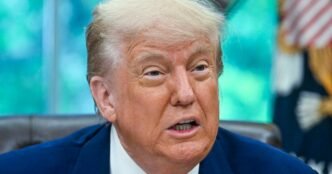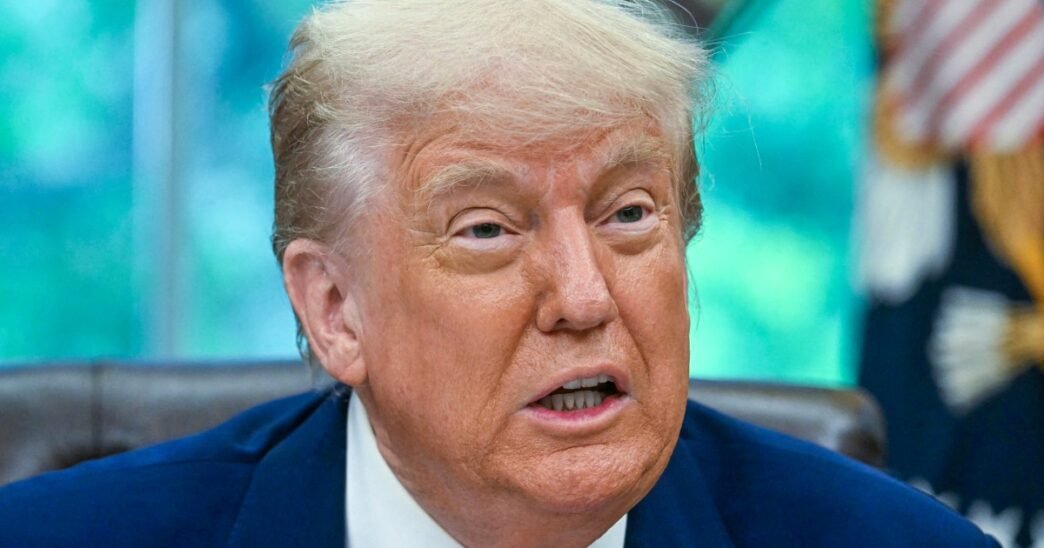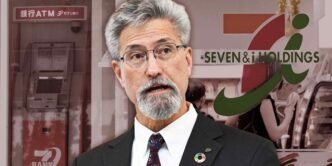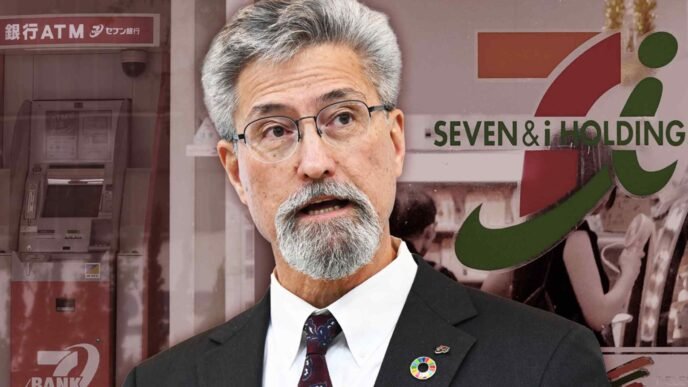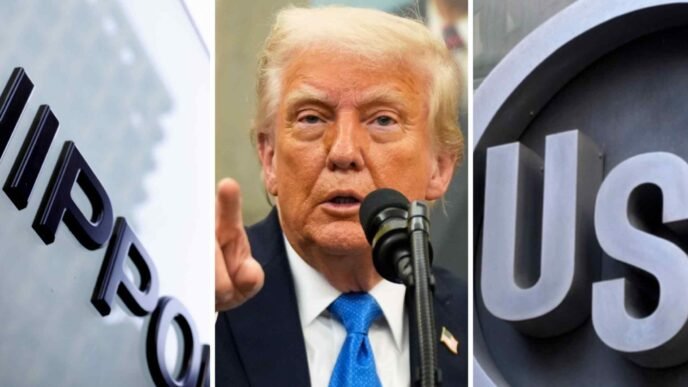This week, Julie Eshelman has been holding her breath, waiting to see if President Donald Trump delivers on his campaign promise to make in vitro fertilization free.
Eshelman is a milit wife and, thanks to IVF, a mom. She first began fertility treatments in 2016, and she and her husband finally welcomed a baby girl — five years, several miscarriages and $80,000 later.
“It’s been a financial burden, but it’s one that we would do over and over again so that we can have our family,” Eshelman told NBC News.
She couldn’t have imagined then that Trump’s second term as president might factor heavily in her decision about whether or not to try for a second baby.
“Hearing presidential candidates and the president talking about IVF — those things weren’t happening five years ago or 10 years ago,” she said, reflecting on the 2024 campaign. “I’m trying to be hopefully optimistic, but there definitely is that side of me that is skeptical of what is to come.”
Trump told NBC News on the campaign trail last year that if he is elected, his administration would work to make IVF paid for by either the government or insurance companies. The proposal came amid broader political conflict on family policies and abortion in 2024, after the Alabama Supreme Court ruled that embryos were considered people under state law, forcing pauses in IVF care before legislators passed a new law.
After he took office, Trump signed an executive order in Febru asking for a list of policy recommendations on “protecting IVF access and aggressively reducing out-of-pocket and health plan costs for IVF treatment.” That 90-day deadline came and went Monday. The White House has not provided an estimate on when it will release its findings.
Details about the discussions that took place over the last 90 days from fertility professionals suggest the talks have been wide-ranging — including those who are eager for the administration to take immediate action to open up access to expensive fertility treatments, as well as some who cautioned the White House away from focusing on IVF.
“As exciting as the executive order was … it doesn’t have any actual actions in it,” said TJ Farnsworth, president of Fertility Providers Alliance and the founder of a chain of fertility clinics.
Farnsworth says FPA, a trade group of reproductive medicine providers, wrote a letter to the White House laying out a “broad spectrum” of ideas for the administration. The White House responded and invited him to meet in March.
“We brought to the table a fairly broad set of ideas,” said Farnsworth, including training programs to address a shortage of fertility providers in the United States, providing coverage for federal employees and providing more robust coverage for active-duty members of the milit.
“There’s a thought that there is coverage for our milit,” he said. “They failed to understand how limited that coverage was … and so they were interested to hear about that.”
Farnsworth said he was also eager to address a division in Trump’s base — opposition to IVF from anti-abortion activists and others who believe life begins at conception and therefore believe embryos are people, not to be discarded over the course of fertility treatments.
“There’s sometimes a competing narrative of whether or not what we do in an IVF clinic and fertility services are congruent with pro-life movements, and so we wanted to make it clear to them, from our perspective, we consider ourselves the definition of pro-life,” Farnsworth said. “If you could only create a couple of a certain number of embryos every time you wanted to attempt pregnancy, it would skyrocket the cost of services for patients.”
“I think they were also excited to hear the idea that there is no fertility clinic in the country anymore that creates dozens and dozens of embryos,” he said of the administration.
The White House also met with members of groups who are opposed to IVF.
After Trump signed his executive order in Febru, the Catholic Medical Association put out a statement calling on the administration to “reconsider its promotion of IVF” in favor of “more ethical and effective measures to address infertility.” The U.S. Conference of Catholic Bishops put out a similar statement.
Both groups called for the White House to instead focus its efforts on restorative reproductive medicine, which supporters say addresses the “root cause” of infertility. The approach is also supported by the Heritage Foundation.
The White House met with some who favor restorative reproductive medicine over IVF.
“I felt like there was interest. I felt like they asked thoughtful questions,” said Dr. Marguerite Duane, co-founder of FACTS About Fertility and a proponent of restorative reproductive medicine.
“They asked the question, how scalable is it? How easy is it for women to learn to track their cycle?” she said.
In a statement to NBC News, White House spokesperson Kush Desai said, “Expanding IVF access for everyday Americans who have been struggling to start families is a key priority for President Trump. The Administration’s close coordination with outside stakeholder groups across the political spectrum to inform our IVF access plan reflects our commitment to delivering on this priority for the American people.”
The inclusion of groups opposed to IVF and the administration’s elimination of the team at the Centers for Disease Control and Prevention that tracked the use and success of the procedure have alarmed some groups in the space, including major advocacy groups who were not invited to meet with the White House.
